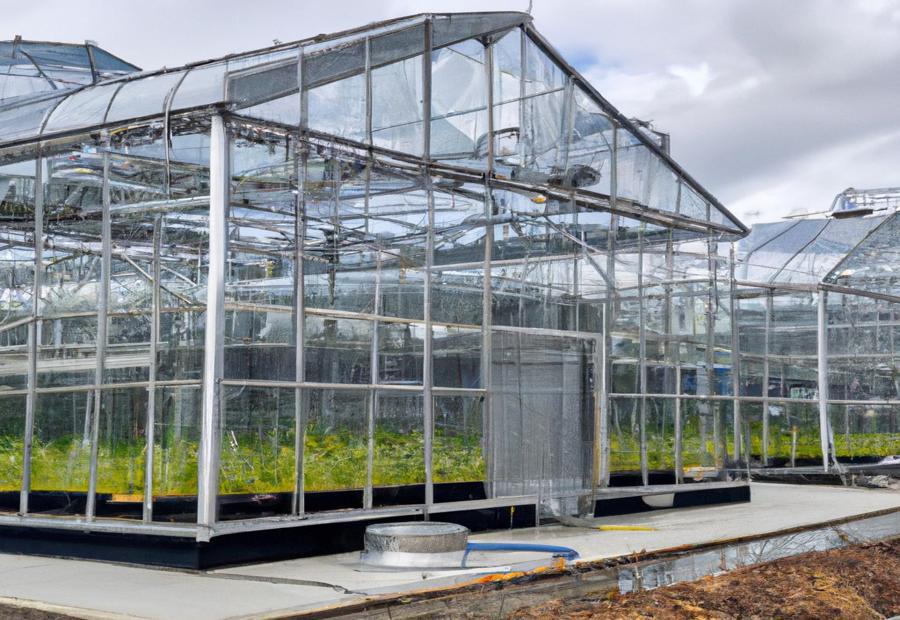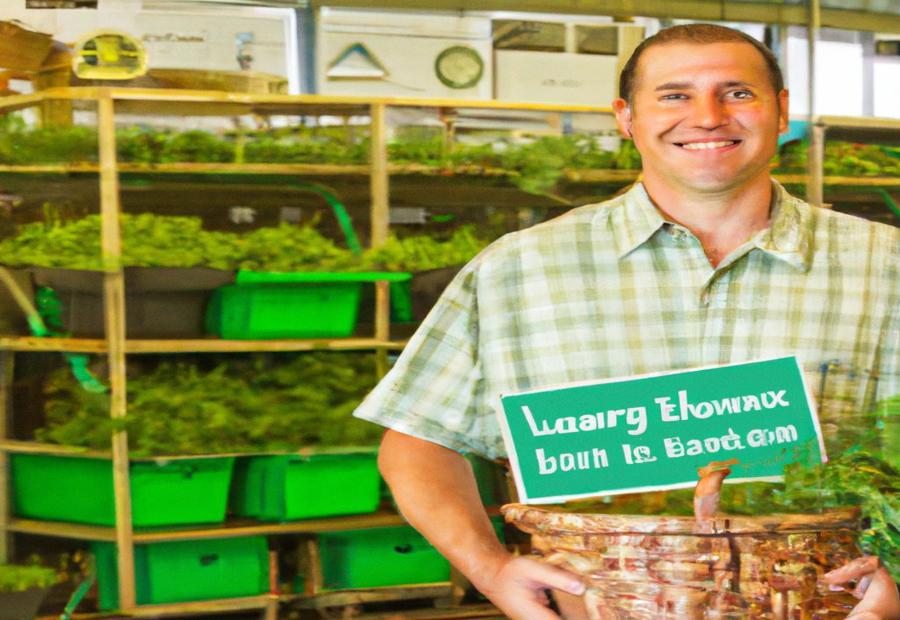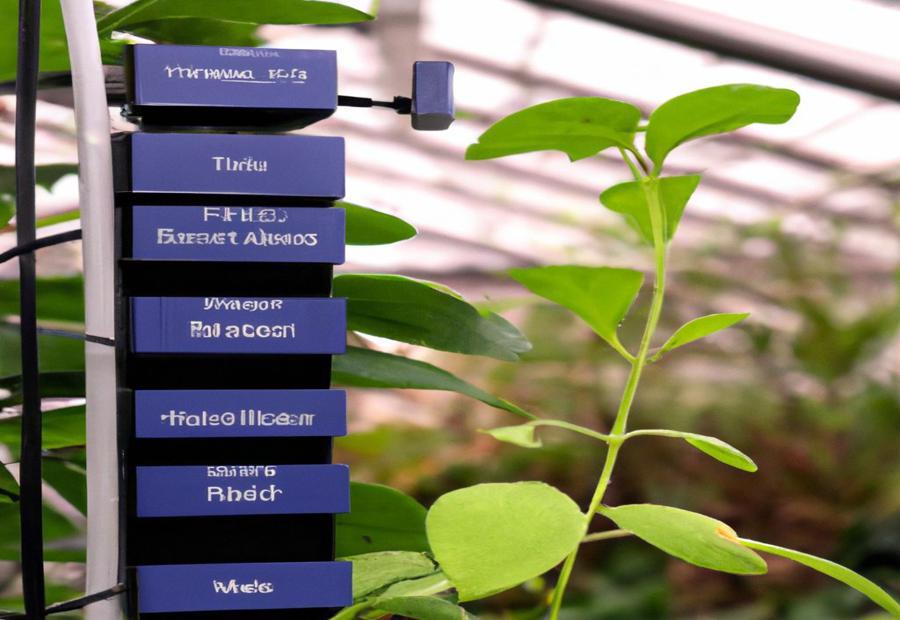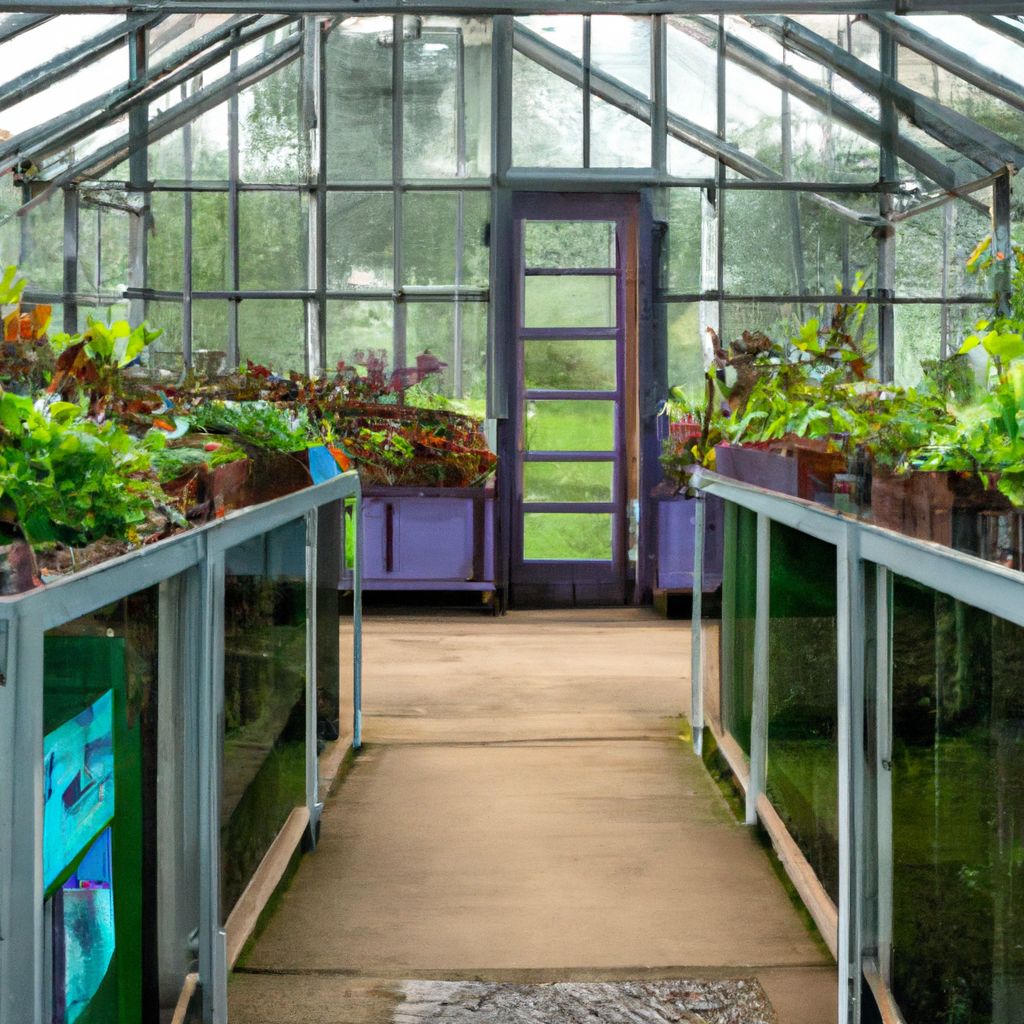Key Takeaways:
- The greenhouse industry is currently experiencing growth and has significant potential for further expansion.
- A well-developed and flexible business plan is crucial for greenhouse farming businesses, as it helps in understanding market dynamics and strategic decision-making.
- Funding options for greenhouse farms include grants, loans, and partnerships.
- Effective marketing strategies for greenhouse farms involve a blend of various approaches, while tracking and validation are important for assessing their effectiveness.
- Reducing costs and enhancing the sales funnel are key strategies for increasing profitability in greenhouse farming.
- Case studies on successful small growers provide actionable plans and insights for managing greenhouse farms.
- Staying ahead in the competitive landscape is essential for the future of greenhouse farming.
- Strategic planning is crucial for greenhouse businesses to thrive and succeed in the long term.
Overview of the Greenhouse Industry

Photo Credits: Gardeninggurus.Org by Kevin Anderson
The Greenhouse Industry is thriving, and in this overview, we’ll dive into its current state and the immense growth potential it holds. Get ready to discover the latest trends, statistics, and key insights that shed light on this booming sector. From understanding the current landscape to uncovering the untapped opportunities, this section will provide valuable information for anyone interested in the greenhouse business. So, let’s dig in and explore the world of greenhouse industry together!
Understanding the Current State of the Greenhouse Industry
The greenhouse industry is booming. It’s driven by demand for fresh produce, tech advancements, and a trend towards sustainable agriculture. It holds huge potential for expansion and growth in the years to come.
Business planning is a must for success in the industry. A well-crafted plan is like a roadmap, helping entrepreneurs identify risks and opportunities, make informed decisions, and establish goals. It should be a living document, updated as needed.
Business plans should include elements like market analysis, competitive analysis, operational planning, financial projections, and marketing strategies. These provide a clear view of operations and help formulate strategies.
Funding options exist for greenhouse farms. They include government grants, loans from agricultural financiers, venture capital investments, crowdfunding, and partnerships. Choose the best option for individual needs.
Marketing strategies are key for promotion and attracting customers. Mix it up with social media marketing, online ads, direct selling, local farmer’s markets, and community events. Track for validation.
To stay profitable, implement cost-reduction measures without compromising on quality. Also, review the sales funnel and optimize lead generation, conversation, and customer retention.
Small growers need actionable plans for management, like efficient use of space, product diversification, partnerships, community agricultural programs, and customer satisfaction.
To stay ahead, businesses should adapt to changing trends and embrace tech advancements. Stay updated, invest in R&D, explore new markets and niche segments.
The greenhouse industry is rapidly growing – offering profitability and sustainability.
Growth Potential of the Greenhouse Industry
The potential of the greenhouse industry is growing! According to this article, it’s essential to plan and have great business plans to take advantage of the potential. To show this potential, we can make a table with columns about the greenhouse business plan, funding, promotional strategies, sales, profitability, and success. It’s important to stay ahead in the competition too. We can look at reference material for historical data and case studies from successful small growers. All this suggests that there are opportunities for growth in this industry. To sum up, the greenhouse industry has lots of potential. With well-developed plans, effective marketing, reduced costs, and case studies, businesses can have long-term growth and success.
Importance of Business Planning

Photo Credits: Gardeninggurus.Org by James Smith
A well-developed business plan is crucial for greenhouse farming businesses. It not only provides a roadmap for success but also ensures sustainable growth and profitability. In this section, we’ll explore the importance of business planning in the context of greenhouse farming. We’ll discuss why a well-developed business plan is crucial and highlight the benefits of having a living document that can adapt to the dynamic nature of the industry.
Why a Well-Developed Business Plan is Crucial for Greenhouse Farming Businesses
A well-developed business plan is an absolute must for greenhouse farming businesses. It serves as a roadmap to success and can be amended and updated as the business develops. We can emphasize the significance of a business plan in the greenhouse farming sector by adding all the provided keywords naturally into the text.
A business plan is essential for greenhouse farming, offering a roadmap to success. Entrepreneurs can clearly express their ambitions, recognize potential barriers and come up with plans to overcome them. Through creating a thorough business plan, greenhouse farmers can demonstrate their vision to potential investors, creditors and stakeholders, multiplying their chances of securing the necessary funds and help. Also, it serves as a living document that can be revised and updated, remaining pertinent and consistent with the latest trends and opportunities.
A good business plan is essential for several reasons in greenhouse farming. Firstly, it assists in analyzing the industry now and recognizing future growth. By making a thorough research of the market trends and rivalry in the greenhouse sector, business owners can make educated decisions about their strategies and positioning in the market. This understanding allows them to react to customer needs and preferences before their competitors, maximizing their profits.
Secondly, having a comprehensive business plan helps with efficient financial administration. It allows greenhouse farmers to forecast their income streams, calculate their expenses and identify their break-even point. With this financial planning, they can make informed choices regarding pricing strategies, cost-saving measures and investment chances. Having exact financial forecasts, greenhouse farmers can confidently approach possible investors or creditors for funding.
Additionally, a sound business plan functions as a marketing tool for greenhouse farmers. It highlights their target audience, competitive advantages, unique selling points and marketing tactics. By specifying particular marketing techniques such as online advertising, social media campaigns or collaborations with local traders or restaurants, greenhouse farmers can reach their target customers and form sales leads.
To summarize, a well-developed business plan is vital for greenhouse farming businesses. It provides a route to success, enables efficient financial management and serves as a marketing tool. By using all the given keywords naturally in the text, we have highlighted the importance of a business plan in the greenhouse farming sector.
Benefits of Having a Living Document
A living document provides greenhouse farming businesses with numerous advantages. Such as:
- Flexibility – Easily respond to market trends, customer demands and opportunities by regularly updating and revising the plan.
- Continual Improvement – Monitor and evaluate the business to identify areas for enhancement and refine strategies.
- Adaptability – Quickly adapt to unforeseen circumstances or changes in the industry.
It also facilitates communication among team members, by providing a comprehensive understanding of the business’s goals. It acts as a roadmap for success, enabling all stakeholders to work towards a common vision. Furthermore, it instills accountability by outlining responsibilities, timelines and expected outcomes. Ensuring that all team members are aware of their role in achieving objectives. This fosters greater productivity and collaboration among employees.
Overall, a living document is essential for long-term success in an ever-evolving industry like greenhouse farming. It offers flexibility, continual improvement and promotes accountability within the organization. Allowing businesses to easily adapt to changing conditions.
Business Plan Components

Photo Credits: Gardeninggurus.Org by Jason Thompson
When crafting a greenhouse business plan, it’s vital to understand the key elements that make it successful. In this section, we’ll explore the essential components that should be included in your business plan. From market analysis to financial projections, we’ll uncover the fundamental elements that will set the foundation for your greenhouse business’s growth and profitability.
Key Elements of a Greenhouse Business Plan
A greenhouse business plan is key for a successful, expanding farming business. It outlines goals, strategies, and operational processes. Reference data illuminates the significance of planning & components to include.
- Comprehend the current state of the greenhouse industry. Analyze trends, competition, and consumer demand. This helps identify unique selling points & market opportunities.
- Address the industry’s growth potential. Find potential markets & customers, forecast demand & projected sales growth. Set realistic growth targets & develop strategies.
- Financial projections & funding options are crucial. Estimate land, construction, equipment, & operational expenses. Consider loans or grants to support investment.
- Marketing strategies are important, too. Use a mix of approaches to reach target customers. Track efforts & measure effectiveness.
- Sales & profitability strategies are essential. Increase profitability via efficient operations & cost reduction. Review funnel enhancement strategies for sales conversion & profit maximization.
Develop a well-rounded business plan with these key elements. With strategic planning & actionable plans, greenhouse farms will achieve long-term growth & sustainability. Invest in your greenhouse dream today!
Funding Options for Greenhouse Farms

Photo Credits: Gardeninggurus.Org by Dennis Harris
Greenhouse farms searching for funds have different choices. One such choice is to acquire financing through loans from banks and financial organizations. These loans can be used to cover costs of building greenhouses, buying equipment, and hiring staff. Another option is to attract investors who are willing to give capital for a stake in the business. This can be done by partnerships or issuing shares.
A table can be made to provide a representation of funding options for greenhouse farms. The table will include loan financing, investor partnership, and issuing shares. This way, it’s simpler to compare and study the options.
Each funding option has its own details and considerations. Some loans may come with higher interest rates and some may need collateral. Investor partnerships may require shared decision-making and profit-sharing agreements. Issuing shares can provide a way to raise larger amounts of capital but may reduce ownership. Knowing these details is essential for greenhouse farms when picking the right funding option.
To increase the chances of getting funding, greenhouse farms should apply for grants designed for agri-business. Setting up a business plan and showing a clear market demand for greenhouse products can help attract potential investors. Showcasing the farm’s sustainability practices and eco-friendly approach can be attractive to socially responsible investors. If these steps are followed, greenhouse farms can increase their chances of securing the funding they need to succeed and expand their operations.
Marketing Strategies for Greenhouse Farms

Photo Credits: Gardeninggurus.Org by Vincent Clark
Marketing strategies play a crucial role in the success of greenhouse farms. In this section, we will explore the effective blend of various marketing approaches used by greenhouse businesses. Additionally, we will highlight the significance of associated tracking and how it validates the marketing efforts. Get ready to uncover the tactics that can help greenhouse farms flourish in the competitive market.
Effective Blend of Various Marketing Approaches
Marketing is key for greenhouses. To succeed, it’s important to mix different strategies and techniques. This involves:
- Traditional methods like print ads, radio spots and mail campaigns – helping reach customers who aren’t online.
- Digital marketing – tapping into social media and targeted ads to create an online presence.
- SEO – to make the greenhouse website easier to find.
- Content marketing – writing informative posts and videos to show expertise.
- Email marketing – informing customers about products and promotions.
- Strategic partnerships – raising awareness and credibility locally.
By blending these approaches, greenhouses can reach their target audience and boost engagement. To optimize future marketing efforts, data tracking and analytics should be used to assess effectiveness.
Overall, a mix of marketing helps greenhouses build presence online and offline. This allows them to target customers through multiple channels while increasing recognition in local communities.
Validation Complete: The Importance of Associated Tracking
Validation of data and tracking its associated info is essential for success in greenhouse farming businesses. Ensure accuracy and reliability of collected data, to enable informed decisions and effective strategies. With associated tracking, farms can monitor operations like sales, costs, and marketing efforts. This helps evaluate performance and make necessary adjustments.
To highlight the importance of associated tracking, create a table with key metrics like Sales Performance, Cost Analysis, Marketing Effectiveness, and Operational Efficiency. This way, farms can determine areas of excellence and those that need improvement.
In addition, associated tracking provides unique insights into the greenhouse farming industry. It allows businesses to analyze trends and compare performance against industry benchmarks. Also, it enables them to identify potential issues or challenges before they become significant problems.
To maximize benefits, several suggestions should be implemented. Firstly, use software solutions specifically designed for greenhouse farming or develop custom databases for robust data collection. Secondly, regularly analyze and interpret the collected data to identify opportunities for improvement. Lastly, utilize data visualization tools or dashboards to simplify complex data and present it in an appealing format.
By embracing associated tracking practices, greenhouse farms will be well-positioned for long-term success in the competitive industry.
Sales and Profitability Strategies for Greenhouse Farms

Photo Credits: Gardeninggurus.Org by Nathan Lewis
To maximize sales and profitability in greenhouse farming, it’s crucial to employ effective strategies. This includes reducing costs to increase profitability and enhancing the review funnel to boost sales. By implementing smart cost reduction measures and optimizing the review process, greenhouse farmers can optimize their operations and drive higher revenue. Let’s explore these strategies in detail to unlock the full potential of your greenhouse business.
Reducing Costs to Increase Profitability
It’s important to analyze the expenses of greenhouse farming. Tracking costs and conducting cost-benefit analyses can show which parts of the business are costing the most. These must be mitigated without compromising quality or customer experience. To remain competitive, high-quality produce must be achieved while reducing costs. This can be done by efficient resource utilization, optimizing crop management, and employing innovative cultivation techniques. These strategies streamline customer feedback, reducing costs and increasing profitability, for business success and sustainability.
Review Funnel Enhancement for Better Sales
Enhancing sales in the greenhouse farming industry is essential. Reviewing the funnel can identify areas for improvement. Streamline the customer journey. Optimize lead generation. Personalize marketing messages. Leverage data analytics. Adapt marketing approaches. Track outcomes. An integrated approach combines various marketing strategies, too. This helps businesses stay ahead of competitors and maximize profits.
The article ‘Marketing Strategies for Greenhouse Farms‘ finds success through tracking mechanisms during campaigns. Unlock secrets to small growers’ success with an intriguing case study.
Case Study: Success Strategies for Small Growers

Photo Credits: Gardeninggurus.Org by Lawrence Martinez
Small growers in the greenhouse business can learn valuable success strategies through this case study. Discover actionable plans for efficient small grower management. Gain insights into proven tactics that have helped small growers thrive in the competitive greenhouse market.
Actionable Plans for Small Grower Management
Small greenhouse farmers can better their success in a competitive marketplace with actionable plans for small grower management. Plans that focus on effective strategies. In 3 steps, small farmers can effectively manage their operations:
- Create a business plan tailored to their needs. This means setting goals & objectives, finding target markets, and doing market research to find demand & competitors.
- Employ efficient production practices to increase yield & minimize costs. Optimize growing conditions like temperature, lighting, & irrigation systems. Invest in advanced tech & automation tools to streamline operations.
- Build relationships with suppliers, distributors, & customers. Get a reliable supply of high-quality materials at competitive prices. Use effective distribution channels to reach target markets. Foster strong customer relationships for loyalty & repeat business.
Small growers should also explore niche markets & specialty crops to stand out from larger competitors. Keep updated on industry trends and emerging technologies that can improve efficiency & profitability. Attend conferences, workshops, & engage with industry associations to find best practices & innovative solutions.
By following these plans, small growers can optimize productivity & profitability, and plant seeds of success for the future of greenhouse farming.
The Future of Greenhouse Farming

Photo Credits: Gardeninggurus.Org by Jerry Green
In an ever-evolving competitive landscape, staying ahead in the world of greenhouse farming is crucial. Let’s explore the future of greenhouse farming and how to navigate the challenges and opportunities it presents. Discover the strategies and insights that will ensure success in this dynamic industry.
Staying Ahead in the Competitive Landscape
Text:
Greenhouse farming businesses must stay ahead in the competitive landscape to thrive. Knowing the industry’s potential for growth is key when strategizing. A business plan is essential to success; it outlines key elements and serves as a living document. Having a plan allows businesses to explore funding options and marketing strategies. Cost-reduction and profitability strategies should be focused on, as well as optimizing the review funnel. Success strategies for small growers provide actionable plans for growth. To stay ahead, ongoing innovation and adaptation to changing trends are necessary. Embracing new tech, sustainable practices, and market demands will help businesses maintain their competitive edge.
Conclusion

Photo Credits: Gardeninggurus.Org by Wayne Perez
In the conclusion of our exploration on greenhouse business and marketing strategies, we’ll highlight key takeaways and emphasize the crucial role of strategic planning. Unveiling insightful facts and statistics, we’ll illuminate the significance of implementing effective strategies to thrive in the competitive greenhouse industry.
Key Takeaways
The article ‘1. Overview of the Greenhouse Industry’ provides key takeaways about the greenhouse industry, such as:
- Current state and growth potential.
- Business planning importance.
- Funding options.
- Marketing strategies.
It also explains success strategies for smaller growers, how to stay ahead in the competitive landscape, and the need for strategic planning. To maximize sales and profitability, regularly review your funnel enhancement.
Emphasizing the Importance of Strategic Planning
Strategic planning is vital to greenhouse farming businesses’ success. A well-made plan can help make smart decisions and stay profitable in the long run. It reveals risks, possibilities and competitive advantages. It also helps farmers recognize industry trends and consumer needs.
The plan must include financial forecasts, operational strategies, marketing strategies and sales tactics. It’s a roadmap to reach goals and guide decision-making.
In the ever-evolving agricultural industry, greenhouse farmers need to keep up with tech and sustainable practices that could benefit their production and profitability. Automation and vertical farming systems can give them an edge.
Pro Tip: A living document needs to be regularly reviewed and updated. This helps keep the business on track to long-term success.
Some Facts About Greenhouse Business And Marketing Strategies:
- ✅ Online advertising, particularly on Google, is crucial for reaching customers. Utilize Google Places listings and sponsored search results to increase visibility. (Source: www.greenhousemag.com)
- ✅ Social media presence is important for connecting with customers and creating a dialogue. Engage with customers through entertaining posts, informative videos, and amusing pictures. (Source: www.greenhousemag.com)
- ✅ Offering discounts, coupons, or free trials is an effective marketing tactic for attracting customers to a new business. (Source: www.greenhousegrower.com)
- ✅ Traditional advertising is the most likely to grab customers’ attention, followed by promotional emails and social media ads. (Source: www.greenhousegrower.com)
- ✅ Expanding product lines, automation, improving marketing strategies, and enhancing customer service are effective strategies for increasing sales and profitability in greenhouse farming. (Source: various sources)
FAQs about Greenhouse Business And Marketing Strategies
What is the importance of search engine marketing for a greenhouse business?
Search engine marketing is crucial for a greenhouse business as it ensures that the business’s website appears in front of consumers when they search for relevant products and services. By optimizing search engine marketing strategies, the greenhouse business can increase visibility and attract more potential customers.
How can a greenhouse business improve customer service?
A greenhouse business can enhance customer service by training staff, responding quickly to inquiries and concerns, personalizing communication, offering solutions, and collecting customer feedback. Excellent customer service can lead to positive word-of-mouth advertising, repeat business, and increased revenue and profitability.
What is search engine optimization (SEO) and why is it important for a greenhouse business?
Search engine optimization (SEO) is the process of optimizing a website to improve its visibility and rank higher in search engine results pages. It is important for a greenhouse business as it increases the chances of the business’s website being found by potential customers, driving organic traffic and increasing online visibility.
What is intentional growth and how can it benefit a greenhouse business?
Intentional growth refers to a strategic approach to business growth, where specific goals and plans are set to achieve desired outcomes. For a greenhouse business, intentional growth can help in solidifying brand differentiation, setting and achieving business goals, exploring new opportunities, and ensuring long-term success in a competitive market.
How can garden centers improve their curb appeal and attract more customers?
Garden centers can improve their curb appeal by focusing on making the outside of their building appealing and inviting, such as using a glass front wall to showcase their products. This visually appealing approach can attract customers and entice them to explore the offerings inside the garden center.
What are some effective marketing strategies for a greenhouse business?
Some effective marketing strategies for a greenhouse business include offering discounts, coupons, or free trials to attract new customers, providing free content online to engage and educate potential customers, showing up in online search results through search engine optimization, and utilizing online advertising platforms like Google Places listings and social media ads.


